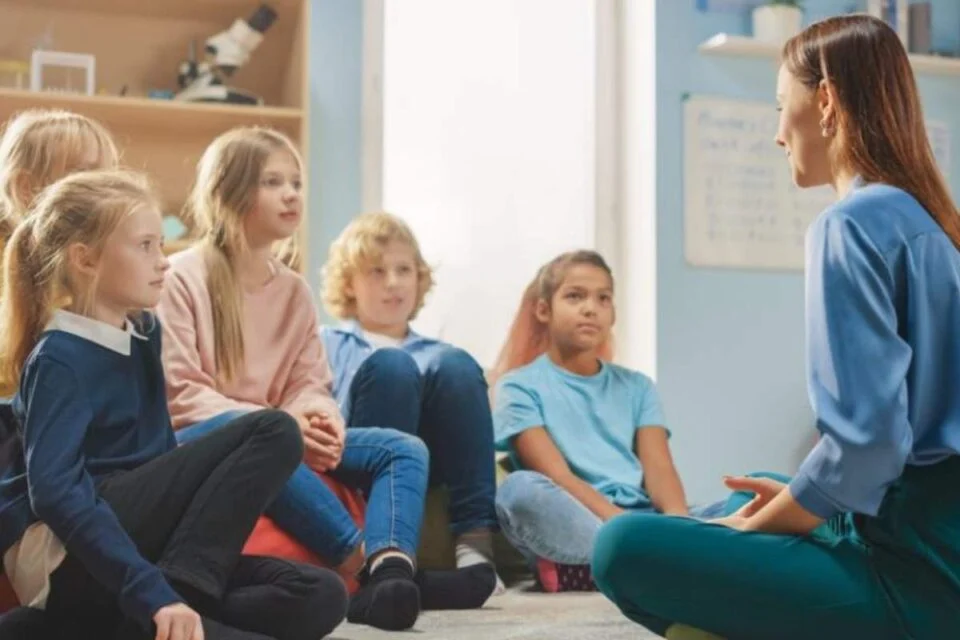How Counselors Support Student Mental Health: A Guide for Parents & Educators

If you’ve ever worried that something feels “off” with your child at school or seen a student retreat into silence or lash out for reasons you don’t understand, you’re not imagining things.
You’re picking up on something real. And chances are, your school counselor has, too.
The truth is, we’re seeing more mental health struggles in schools than ever before. Anxiety. Depression. Isolation. Anger. And so many children don’t have the words to explain what they’re feeling, let alone the skills to manage it. That’s where counselors come in.
Let’s talk about how counselors support student mental health, not in abstract terms, but in the hallways, classrooms, and quiet corners where real life happens.
What a School Counselor Actually Does
A lot of people still think school counselors just schedule classes or talk about careers. But the job goes much deeper.
Counselors are trained mental health professionals who serve every student, not just those in crisis. We work on three fronts: academic, career, and social-emotional development. And when it comes to mental health, we’re often the first line of defense.
That means we:
- Recognize early warning signs of anxiety, depression, trauma, or self-harm
- Create safe spaces for students to talk and process emotions
- Teach emotional regulation, conflict resolution, and coping strategies
- Support students dealing with grief, family changes, or social struggles
- Collaborate with parents, teachers, and outside professionals to build support systems
The keyword here is support. We don’t diagnose. We don’t “fix.” But we do walk with students through some of the hardest moments of their lives and help them find their way back to themselves.
What Mental Health Looks Like in a School Setting
Mental health challenges in children don’t always look like sadness. Sometimes, they show up as:
- A stomachache that keeps sending them to the nurse
- Zoning out in class
- Picking fights with friends
- Crying over small things
- Refusing to come to school
When you understand that behavior is communication, you begin to see what’s really going on. That’s what counselors are trained to notice and gently uncover.
In my years as a counselor, I’ve had students open up about panic attacks they didn’t know how to name or grief they had buried so deep they thought it was gone. And I’ve seen how just having one trusted adult in the building can make the difference between spiraling and stabilizing.
That’s why how counselors support student mental health isn’t just about reacting to a crisis; it’s about preventing it.
For Parents: What You Can Do
If you’re a parent reading this, I want to encourage you: don’t wait until there’s a meltdown to reach out.
- Introduce yourself to your child’s counselor.
- Ask how SEL is being taught at school.
- Share relevant life updates (death in the family, divorce, moves).
- Encourage your child to talk to the counselor, even when nothing’s “wrong.”
Remember, school counselors aren’t just for when something is broken. They’re there to help your child build the tools they’ll need long before a problem hits.
For Educators: Partnering With Counselors Matters
Teachers are overwhelmed. I know that. But the students who test your patience may be the ones who need the most support, and you don’t have to figure it out alone.
School counselors can:
- Help you interpret student behavior
- Offer classroom strategies for emotional regulation
- Co-lead lessons on coping skills or peer conflict
- Coordinate with families when a student is struggling
The more we collaborate, the better we serve students. And when educators and counselors work as a team, students feel it; they feel seen, heard, and safe.
Ending Note
If there’s one thing I want you to remember, it’s this: mental health is not separate from school success; it is school success.
The students who feel safe emotionally are the ones who can learn, grow, and thrive. And the work counselors do behind the scenes, one conversation at a time, has ripple effects far beyond what’s visible.
I’ve devoted my life to this work because I believe in the power of early intervention, open dialogue, and the healing that happens when a child feels known.
So, if you’re wondering how counselors support student mental health, the answer is simple: we meet students where they are and walk with them to where they need to go.



